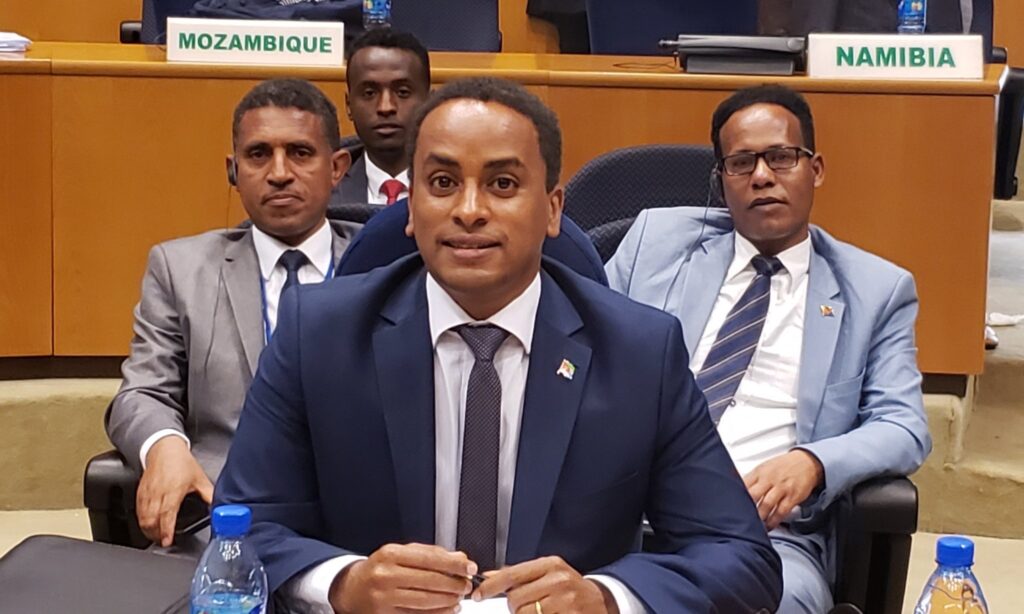“ The Importance of the 75th Ordinary Session of the African Commission on Human and Peoples’ Rights (ACHPR).”
Article by: Auet Melache – @EriStarukMedia
The 75th Ordinary Session of the African Commission on Human and Peoples’ Rights (ACHPR), taking place from 3-23 May 2023, is an important milestone for the African continent and its people. This year, the session is a hybrid event, providing an opportunity to prioritize safety while ensuring major developments are discussed. The main agenda item, “Human Rights Situation in Africa,” is crucial to address the current state of affairs and strategize ways to ensure peace, security, and development for the people of Africa.
A Key Moment for Africa and Eritrea
The year 2023 marks significant milestones for Africa and, in particular, for the State of Eritrea. On May 25th, Africa will celebrate the 60th anniversary of the establishment of the OAU, its predecessor. This historical moment calls for reflection on past achievements and shortcomings, learning from experience, and devising strategies to ensure the AU fulfills its mandate of ensuring peace, security, and development for the continent’s people.
Eritrea also celebrates its 32nd anniversary of Independence on May 24, 2023. The country’s right to decolonization was achieved through a 30-year war of liberation and a referendum process in April 1993. In the event, Eritrea’s 32nd Independence Anniversary is a time to reflect and rededicate towards building a cohesive nation that honours the sacrifices made to protect its sovereignty and territorial integrity.

Development Efforts in Eritrea
As the Eritrean government moves towards fulfilling its commitment to building a nation that benefits all its citizens, the country has adopted a comprehensive national development road-map. This plan aims to create cohesive communities that support and participate in nation-building efforts across various sectors, including health, education, agriculture, and fishery, water, social welfare, justice, environmental protection, energy, transport, and communications.
Empowering Human Development
The Eritrean government’s efforts to mobilize and organize resources, boost capacity, and encourage private domestic investment are fundamental factors driving progress towards sustainable human development. The Ministry of Education has emphasized a human resource development policy and strategy review, resulting in a comprehensive policy on Early Childhood Care and Education (ECCE) that aligns with the global target set for ECCE in SDG4. The policy on Special Needs Education/Inclusive Education (SNE/IE) that promotes an education system for children with special needs has also been reviewed and invigorated.
Additionally, Eritrea continues to implement its Health sector 2022-2026 strategic plan with the aim of ensuring a comprehensive Implementation of Reproductive, Maternal, Newborn, Child, and Adolescent Health and Healthy Ageing Program.
Agro-Transformation and Infrastructure Development
Eritrea is committed to achieving structural transformation in the agricultural sector. Farmers and the government are pursuing initiatives that target nationwide expansion in the planted area and harvest. The country’s priorities in water infrastructure go beyond dam construction to include measures such as afforestation, terracing, and utilization of subterranean water resources. The energy sector’s short-term road-map aims to transition from subsistence to an industrial economy, with plans to increase output by 360MW in the short term. Critical physical infrastructure, including roads, is also being pursued with added vigour.
The Quest for Peace, Security, and Development
Eritrea recognizes the interlinkage between peace and security, human rights, and development in the region and the rest of Africa. As the Horn of Africa continues to face challenges, including the ongoing conflict in Sudan, Eritrea calls for an immediate end to this tragic situation. The Eritrean government has opened its borders to receive Sudanese and Eritrean citizens and others affected by the conflict, demonstrating a high level of humanity and solidarity with those in need.
Conclusion
In conclusion, the 75th Ordinary Session of the ACHPR offers a unique opportunity to reflect on past achievements and shortcomings while devising ways to ensure a peaceful, secure, and developed Africa. Eritrea remains committed to fulfilling its obligations under the Banjul Charter and strengthening constructive engagement with the ACHPR through partnership.


Comments are closed.